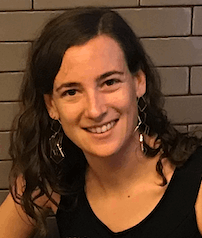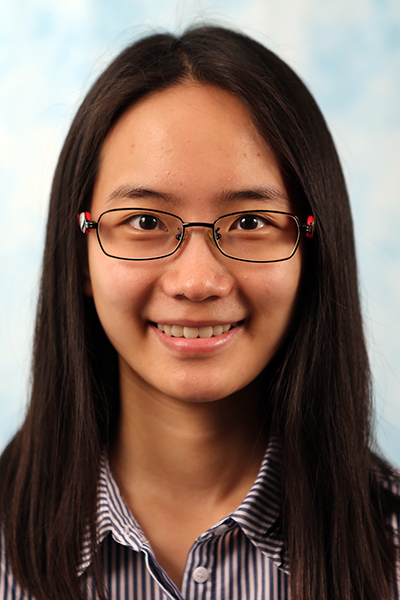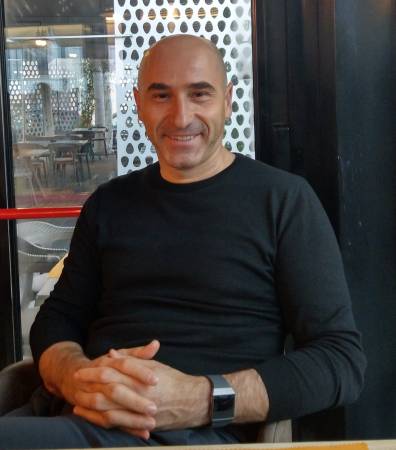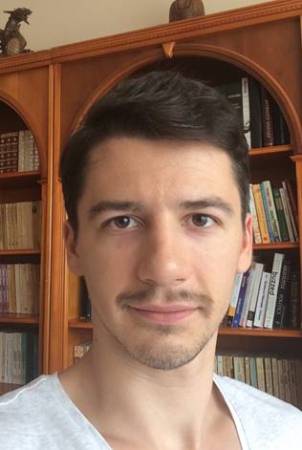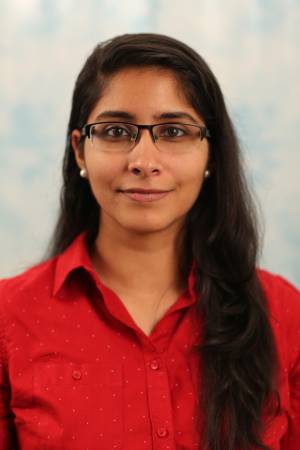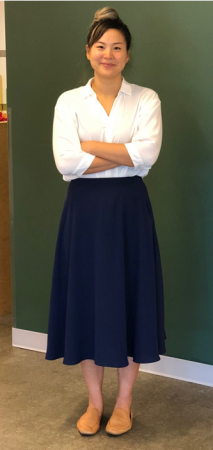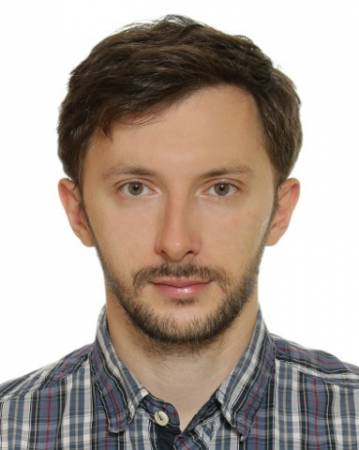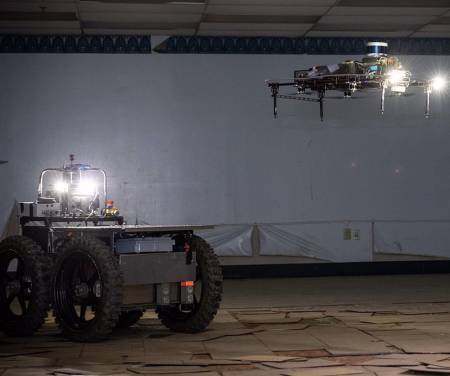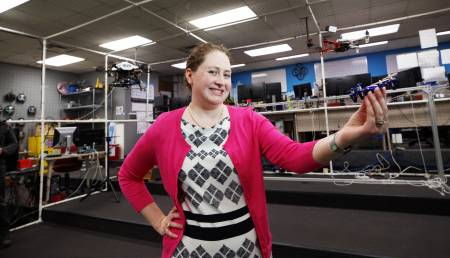Task-specific Vision DNN Models and Their Relation for Explaining Different Areas of the Visual Cortex
Virtual VASC Seminar: https://cmu.zoom.us/j/249106600 Abstract: Deep Neural Networks (DNNs) are state-of-the-art models for many vision tasks. We propose an approach to assess the relationship between visual tasks and their task-specific models. Our method uses Representation Similarity Analysis (RSA), which is commonly used to find a correlation between neuronal responses from brain data and models. [...]
Carnegie Mellon University
A Theory of Fermat Paths for Non-line-of-sight Shape Reconstruction
Zoom Link Abstract: Traditionally, computer vision systems and algorithms, such as stereo vision, and shape from shading, have been developed to mimic human vision. As a consequence, a lot of these systems operate under constraints that we take for granted in human vision. An example of such a constraint is that the scene of interest [...]
Learning Contextual Actions for Heuristic Search-Based Motion Planning
Zoom Link Abstract: Heuristic search-based motion planning can be computationally costly in large state and action spaces. In this work we explore the use of generative models to learn contextual actions for successor generation in heuristic search. We focus on cases where the robot operates in similar environments, i.e. environments drawn from some underlying distribution. [...]
End-to-end Generative 3D Human Shape and Pose Models and Active Human Sensing
Virtual VASC Seminar: https://cmu.zoom.us/j/249106600 Title: End-to-end Generative 3D Human Shape and Pose Models and Active Human Sensing Abstract: I will review some of our recent work in 3d human modeling, synthesis, and active vision. I will present our new, end-to-end trainable nonlinear statistical 3d human shape and pose models of different resolutions (GHUM and GHUMLite) as [...]
Carnegie Mellon University
Safe and Resilient Multi-Robot Systems: Heterogeneity and Human Presence
Zoom Link Abstract: In the mission of a multi-robot team, the large number of robots behave like a system that relies on networking to enable smooth information propagation and inter-robot interaction as the mission evolves in a collective fashion. Key to the success of mission operation demands for safe and reliable robot interactions within the [...]
Carnegie Mellon University
Michael Tatum – MSR Thesis Talk
Archived Zoom Video Password: 1u%i4YO% Title: Communications Coverage in Unknown Underground Environments Abstract:In field robotics, maintaining communications between the user at a stationary basestation and all deployed robots is essential. This task's difficulty increases when the test environment is underground and the environment is unknown to the operator and robots. A common approach [...]
Carnegie Mellon University
Brendan Miller – MSR Thesis Talk
Zoom Link: https://cmu.zoom.us/j/96617143856 Title: IBB-Net: Fast Iterative Bounding Box Regression for Point Clouds Abstract: Currently, most point cloud based detection pipelines are focused on producing high accuracy results while requiring significant computational resources and a high-end GPU. Our research explores how to reduce the computational overhead by improving a key element of detection: bounding box regression. We [...]
Carnegie Mellon University
Interactive Weak Supervision – Learning Useful Heuristics for Data Labeling
Zoom Link Abstract: Obtaining large annotated datasets is critical for training successful machine learning models and it is frequently a bottleneck in practice. Weak supervision offers a promising alternative for producing labeled datasets without ground truth annotations by generating probabilistic labels using multiple noisy heuristics. This process can scale to large amounts of data and [...]
Carnegie Mellon University
Automated Action Selection and Embodied Simulation for Socially Assistive Robots using Standardized Interactions
Zoom Link Abstract: Robots have the tremendous potential of assisting people in their lives, allowing them to achieve goals that they would not be able to achieve by themselves. In particular, socially assistive robots provide assistance primarily through social interaction, in healthcare, therapy, and education contexts. Despite their potential, current socially assistive robots still lack [...]
Telling Left from Right: Learning Spatial Correspondence Between Sight and Sound
Virtual VASC Seminar: https://cmu.zoom.us/j/92741882813?pwd=R1R0eGRaeXFHTEF2VWNwY2VIZmU5Zz09 Abstract: Self-supervised audio-visual learning aims to capture useful representations of video by leveraging correspondences between visual and audio inputs. Existing approaches have focused primarily on matching semantic information between the sensory streams. In my talk, I’ll describe a novel self-supervised task to leverage an orthogonal principle: matching spatial information in the [...]
Carnegie Mellon University
Heuristics for routing and scheduling of Spatio-Temporal type problems in industrial environments
Zoom Link Abstract: Spatio-temporal problems are fairly common in industrial environments. In practice, these problems come with different characteristics and are often very hard to solve optimally. So practitioners prefer to develop heuristics that exploit mathematical structure specific to the problem for obtaining good performance. In this proposal, I will present work on heuristics for [...]
Carnegie Mellon University
Aditya Agarwal – MSR Thesis Talk
Zoom Link: https://cmu.zoom.us/j/3276236755 Title: Fast and High-Quality GPU-based Deliberative Perception for Object Pose Estimation Abstract: Pose estimation of known objects is fundamental to tasks such as robotic grasping and manipulation. The need for reliable grasping imposes stringent accuracy requirements on pose estimation in cluttered, occluded scenes in dynamic environments. Existing methods either require large sets of [...]
Carnegie Mellon University
Learning Active Task-Oriented Exploration Policies for Bridging the Sim-to-Real Gap
Zoom Link Abstract: Training robotic policies in simulation suffers from the sim-to-real gap, as simulated dynamics can be different from real-world dynamics. Past works tackled this problem through domain randomization and online system-identification. The former is sensitive to the manually-specified training distribution of dynamics parameters and can result in behaviors that are overly conservative. The [...]
Carnegie Mellon University
Understanding, Exploiting and Improving Inter-view Relationships
Zoom Link Abstract: Multi-view machine learning has received substantial attention in various applications over recent years. These applications typically involve learning on data obtained from multiple sources of information, such as, for example, in multi-sensor systems such as self-driving cars and patient bed-side monitoring. Learning models for such applications can often benefit from leveraging not [...]
Interferometric light transmission probing with coded mutual intensity
Zoom Link Abstract: We introduce a new interferometric imaging methodology that we term interferometry with coded mutual intensity, which allows selectively imaging photon paths based on attributes such as their length and endpoints. At the core of our methodology is a new technical result that shows that manipulating the spatial coherence properties of the light [...]
Carnegie Mellon University
Josh Jaekel – MSR Thesis Talk
Zoom Link: https://cmu.zoom.us/j/97161117200?pwd=QlpkS0hFOFVLRDlKVlFqby9JbWZTUT09 Title: Towards Robust Multi-Camera Visual Inertial Odometry Abstract: Visual inertial odometry (VIO) has become an increasingly popular method of obtaining a state estimate on board smaller robots like micro aerial vehicles (MAVs). While VIO has demonstrated impressive results in certain environments, there is still work to be done in improving the robustness of [...]
Carnegie Mellon University
John Mai – MSR Thesis Talk
Zoom Link: https://cmu.zoom.us/j/7518832261 Title: System Design, Modelling, and Control for an Off-Road Autonomous Ground Vehicle Abstract: Autonomy in passenger road vehicles has long been a goal for many research groups and companies, and there has been a significant amount of focus on achieving this endeavour. A lesser focused upon area is the task of precise autonomous [...]
Carnegie Mellon University
Zoom Link: https://cmu.zoom.us/j/5523238059 Title: Robust Instance Tracking via Uncertainty Flow Abstract: Current state-of-the-art trackers often fail due to distractors and large object appearance changes. In this work, we explore the use of dense optical flow to improve tracking robustness. Our main insight is that, because flow estimation can also have errors, we need [...]
The Topology of Learning
Zoom Virtual Meeting: https://cmu.zoom.us/j/92178295543?pwd=L2dwZU5SbDY5NzZZNzZ4ZmFUclRqQT09 Abstract: Deep Neural Networks (DNNs) have revolutionized computer vision. We now have DNNs that achieve top results in many computer vision problems, including object recognition, facial expression analysis, and semantic segmentation, to name but a few. Unfortunately, the rise in performance has come with a cost. DNNs have become so [...]
Carnegie Mellon University
Sarthak Ahuja – MSR Thesis Talk
Zoom Link: https://cmu.zoom.us/j/8978517404 Title: Visual Assessment for Non-Disruptive Object Extraction Abstract: Robots operating in human environments need to perform a variety of dexterous manipulation tasks on object arrangements that have complex physical support relationships, e.g. procuring utensils from a large pile of dishes, grabbing a bottle from a stuffed fridge, or fetching a book from a loaded [...]
Carnegie Mellon University
Eric Dexheimer – MSR Thesis Talk
Location: https://cmu.zoom.us/j/98262481359?pwd=dnN4UERmQlF6dVVROTQ1czYrU215UT09 Title: Efficient Multiresolution Scrolling Grid for MAV Obstacle Avoidance Abstract: In this talk, we propose the use of an efficient, structured multiresolution representation for robot mapping and planning. We focus on expanding the sensor range of dense local grids for memory-constrained platforms. While multiresolution data structures have been proposed previously, we avoid processing [...]
Carnegie Mellon University
Tanmay Agarwal – MSR Thesis Talk
Zoom link: https://cmu.zoom.us/j/3388909661 Title: On-Policy Reinforcement Learning for Learning to Drive in Urban Settings Abstract: Traditional autonomous vehicle pipelines that follow a modular approach have been very successful in the past both in academia and industry, which has led to autonomy deployed on road. Though this approach provides ease of interpretation, its generalizability to unseen [...]
Jay Patrikar – MSR Thesis Talk
Zoom link: https://cmu.zoom.us/j/93391276533?pwd=RTM4NTc0cTJETmRudGcwenNCSVgzdz09 Title: Wind-Field Estimation and Curvature Continuous Path Planning for Low Altitude Urban Aerial Mobility Abstract: Unmanned Aerial Vehicles (UAVs) operating in dense urban areas need the ability to generate wind-aware collision-free, smooth, dynamically feasible trajectories between two locations. The complex and high-rise structure of the modern urban landscape affects the wind flow [...]
Benjamin Freed – MSR Thesis Talk
Where?:https://cmu.zoom.us/j/96355036481?pwd=OCtBeWZpMnZsZzFlRkJWc2dkZW5qUT09 Title: Discrete Communication Learning via Backpropagation for Distributed Computing on Bandwidth-Limited Communication Networks Abstract: Efficient inter-agent communication is an important requirement for both cooperative multi-agent robotics tasks, as well as distributed computing. In both of these domains, the rate at which information can be transferred between robots or computing nodes is often [...]
Carnegie Mellon University
Tanvir Parhar – MSR Thesis Talk
Zoom Link:https://cmu.zoom.us/j/3399055387 Title: Applications of Deep Learning for Robotic Agriculture. Abstract: Agricultural automation is a varied and challenging field, with tasks ranging from detection to sizing and from manipulation to navigation. These are also precursors to effective plant breeding and management. Making plant measurements by manually scouting is labor-intensive and intractable at large scale. [...]
Carnegie Mellon University
Hitesh Arora – MSR Thesis Talk
Zoom link: https://cmu.zoom.us/j/4937138807 Title: Off-Policy Reinforcement Learning for Autonomous Driving Abstract: Modern autonomous driving systems continue to face the challenges of handling complex and variable multi-agent real-world scenarios. Some subsystems, such as perception, use deep learning-based approaches to leverage large amounts of data to generalize to novel scenes. Other subsystems, such as planning [...]
Carnegie Mellon University
Scott Sun – MSR Thesis Talk
Zoom link: https://cmu.zoom.us/j/93097644031?pwd=RzZVSXEvdE5zZ0RDaU9FdmRUMU1vQT09 Title: Accurate Orientation Estimates for Deep Inertial Odometry Abstract: Many smartphone applications use inertial measurement units (IMUs) to sense movement, but the use of these sensors for pedestrian localization can be challenging due to their noise characteristics. Recent deep inertial odometry approaches to pedestrian navigation have demonstrated the increasing feasibility of inertial navigation. However, [...]
Carnegie Mellon University
Allen Cheng – MSR Thesis Talk
Zoom link: https://cmu.zoom.us/j/6056258382 Title: Search-Based Planning with Extend Operator Abstract: Sampling-based approaches are often favored in robotics for high-dimensional motion planning for their fast coverage of the search space. However, at best they offer asymptotic guarantees on completeness and solution quality, and returned paths are typically unpredictable due to their inherent stochasticity. By [...]
Implicit Neural Scene Representations
Virtual Zoom Seminar: https://cmu.zoom.us/j/92178295543?pwd=L2dwZU5SbDY5NzZZNzZ4ZmFUclRqQT09 Abstract How we represent signals has major implications for the algorithms we build to analyze them. Today, most signals are represented discretely: Images as grids of pixels, shapes as point clouds, audio as grids of amplitudes, etc. If images weren't pixel grids - would we be using convolutional neural networks [...]
Carnegie Mellon University
Chenfeng Tu – MSR Thesis Talk
Location: https://cmu.zoom.us/j/96696044200?pwd=MVl4aUpiZlYvYlRwRmF1SVBUeGx6Zz09 Title: On-the-fly Targetless Extrinsics Calibration For Multi-Stereo Systems Without Field-of-View Overlap Abstract: In this talk, we propose an on-the-fly extrinsics calibration method for stereo pairs lacking overlapping field of view that is robust to visual odometry errors. Multi-stereo systems are becoming increasingly popular because of their large field of view (FoV) that benefits [...]
Carnegie Mellon University
Shuoqi Chen – MSR Thesis Talk
Zoom link: https://cmu.zoom.us/j/9608506704 Title: Towards Geometric Motion Planning for 3-link Kinematic Systems Abstract: Geometric mechanics offers a powerful mathematical framework for studying locomotion for mobile systems. Despite the well-established literature, challenges remain when using geometric mechanics to design gaits for robots made of multi-link chain; in this thesis, we look at two of them. First, [...]
Carnegie Mellon University
Robot Deep Reinforcement Learning: Tensor State-Action Spaces and Auxiliary Task Learning with Multiple State Representations
Zoom Link Abstract: A long standing goal of robotics research is to create algorithms that can automatically learn complex control strategies from scratch. Part of the challenge of applying such algorithms to robots is the choice of representation. Reinforcement Learning (RL) algorithms have been successfully applied to many different robotic tasks such as the Ball-in-a-Cup [...]
Raunaq Bhirangi – MSR Thesis Talk
Zoom link: https://cmu.zoom.us/j/93803046130?pwd=dE5LU21lakcxNjBmZ0EvVDdNOWswdz09 Title: Learning Families of Behaviors for Legged Locomotion using Model-Free Deep Reinforcement Learning Abstract: Conventional planning and control of highly articulated legged robots is challenging because of the high dimensionality of the state space, and such conventional techniques normally produce a single point solution. In this work, we present a [...]
Carnegie Mellon University
William Qi – MSR Thesis Talk
Location: https://cmu.zoom.us/j/96923127678?pwd=TWt3Zk5neFUzSlJWUjZEN2F6UVhudz09 Title: Representation Learning for Safe Autonomous Movement Abstract: Mobile robots have become an increasingly common presence in our homes and on our roads. To move safely within these shared spaces, autonomous agents must understand how other dynamic actors behave and how such behavior influences the navigability of the surrounding scene. Towards this goal, we [...]
Carnegie Mellon University
Ryan Coulson – MSR Thesis Talk
Zoom link: https://cmu.zoom.us/j/91138367616 Title: Soft Materials Architectures for Robot Manipulation Abstract: Robot manipulation has been a prolific subject of academic research for several decades - however, today's robotic manipulators have yet to demonstrate an ability to perform robust and versatile dexterous manipulation. This challenge can largely be attributed to a tradeoff between complexity and capability [...]
Carnegie Mellon University
Anish Bhattacharya – MSR Thesis Talk
Zoom link: https://cmu.zoom.us/j/4413360562 Title: Toward Increased Airspace Safety: Quadrotor Guidance for Targeting Aerial Objects Abstract: As the market for commercially available unmanned aerial vehicles (UAVs) booms, there is an increasing number of small, teleoperated or autonomous aircraft found in protected or sensitive airspace. Existing solutions for removal of these aircraft are either military-grade and too [...]
Carnegie Mellon University
Aaron Miller – MSR Thesis Talk
Zoom link: https://cmu.zoom.us/j/95386019509?pwd=cmNnTm9lWWlNbTh1SmQ0RU5PVTBmQT09 Title: Cooperative Perception for Pairs of Self-Driving Cars Abstract: Fully autonomous vehicles are expected to share the road with less advanced vehicles for a significant period of time. Furthermore, an increasing number of vehicles on the road are equipped with a variety of low-fidelity sensors which provide some perception and localization [...]
Carnegie Mellon University
Sara Misra – MSR Thesis Talk
Zoom link: https://cmu.zoom.us/j/3216213856 Title: Learning-based modular framework for environment-adaptive planning in exploration tasks Abstract: Search-based path planning has spawned a number of different solutions using different paradigms and strategies, both generalized and specific to certain problems, representations, and environments. Split into heuristic and non-heuristic based approaches, where heuristic-based approaches, embedded within these approaches [...]
Carnegie Mellon University
Blake Buchanan – MSR Thesis Talk
Location: https://cmu.zoom.us/j/99874277969?pwd=Q1MvczNhWTB4UmF3UXFOMEFtVG1uZz09 Title: Mechanics and Control of Coupled Interactions in Ambient Media Abstract: Many multi-agent systems in nature comprise agents that interact with, and respond to, the dynamics of their environment. For example, fish school based on the fundamental fluid phenomena of vortex shedding, birds shed leading-edge vortices in formation for flocking, and E. coli bacteria [...]
Carnegie Mellon University
Online Inference of Joint Occupancy using Forward Sensor Models and Trajectory Posteriors for Deliberate Robot Navigation
Zoom Link Abstract: Robotic navigation algorithms for real-world robots require dense and accurate probabilistic volumetric representations of the environment in order to traverse efficiently. Sensor data in a Simultaneous Localisation And Mapping (SLAM) context, however, always has associated acquisition noise and pose uncertainty, and encoding this within the map representation while still maintaining computational tractability [...]
Computational Imaging: Beyond the Limits Imposed by Lenses
Virtual VASC Seminar: https://cmu.zoom.us/j/92587238250?pwd=S0paYUVBUXozQkFTclMwRUg0MzBNZz09 Abstract: The lens has long been a central element of cameras, since its early use in the mid-nineteenth century by Niepce, Talbot, and Daguerre. The role of the lens, from the Daguerrotype to modern digital cameras, is to refract light to achieve a one-to-one mapping between a point in the scene and a point on the sensor. This effect enables the sensor to compute a particular two-dimensional (2D) [...]
Beyond ROS: Using a Data Connectivity Framework to build and run Autonomous Systems
Virtual FRC Seminar: Seminar recording: https://cmu.zoom.us/rec/share/x84qF7_q8TlIcpHoyG_DRa58O6i8aaa8hCAW_fEPxEkBGjBVPyzW_lK0YW30RfJ3?startTime=1598551489000 Passcode: qu6)ePH9 Abstract: Next-generation robotics will need more than the current ROS code in order to comply with the interoperability, security and scalability requirements for commercial deployments. This session will provide a technical overview of ROS, ROS2 and the Data Distribution Service™ (DDS) protocol for data connectivity in safety-critical cyber-physical [...]
Learning 3D Reconstruction in Function Space
Virtual VASC Seminar: https://cmu.zoom.us/j/96635002737?pwd=RkxGVlJaUTlhcDdGeVBPcnpTS015dz09 Abstract: In this talk, I will show several recent results of my group on learning neural implicit 3D representations, departing from the traditional paradigm of representing 3D shapes explicitly using voxels, point clouds or meshes. Implicit representations have a small memory footprint and allow for modeling arbitrary 3D toplogies at [...]
Carnegie Mellon University
Machine Learning Parallelism Could Be Adaptive, Composable and Automated
Zoom Link Abstract: In recent years, researchers in SysML have created algorithms and systems that parallelize ML training over multiple devices or computational nodes. As ML models become more structurally complex, many systems have struggled to provide all-round performance on a variety of models. Particularly, ML scale-up is usually underestimated in terms of the amount [...]
Carnegie Mellon University
Computational Contact Modes for Robotics
Zoom Link Abstract: A central theme in robotics is that of robots interacting with the world through physical contact. Whether it is a walking robot or robotic manipulator picking up an object, such as a spoon, we desire robots that physically interact with their environments. One significant challenge in physical robot interactions involves dealing with [...]
Carnegie Mellon University
Data-Driven Robotic Grasping in the Wild
Zoom Link Abstract: Humans can effortlessly grasp a wide variety of objects in diverse environments. On the other hand, robotic grasping has been extremely challenging in practice and is far from matching human dexterity. Despite recent progress in the community, most research is still largely focused on constrained environments like picking individual objects on a [...]
Scaling Probabilistically Safe Learning to Robotics
Abstract: Before learning robots can be deployed in the real world, it is critical that probabilistic guarantees can be made about the safety and performance of such systems. In recent years, safe reinforcement learning algorithms have enjoyed success in application areas with high-quality models and plentiful data, but robotics remains a challenging domain for [...]
Carnegie Mellon University
Routing for Persistent Exploration in Dynamic Environments with Teams of Energy-Constrained Robots
Abstract: Disaster relief scenarios require rapid and persistent situational awareness to inform first-responders of safe and viable routes through a constantly shifting environment. Knowing what roads have become flooded or are suddenly obstructed by debris can significantly improve response time and ease the distribution of resources. In a sufficiently large environment, deploying and maintaining fixed [...]
Compositional Representations for Visual Recognition
Virtual VASC - https://cmu.zoom.us/j/99437689110?pwd=cWxuQkIwWlFFZEk0QkVDUVFiN0lTdz09 Abstract: Compositionality is the ability for a model to recognize a concept based on its parts or constituents. This ability is essential to use language effectively as there exists a very large combination of plausible objects, attributes, and actions in the world. We posit that visual recognition models should be [...]
Sparse Spatial Hashing for Dense 3D Reconstruction
Abstract: Real-world 3D data is locally dense but globally sparse. Therefore, efficient sparse data structures are an essential component of dense 3D perception for computer vision and robotics. We manifest the power of spatial hashing by two typical tasks: dense scene reconstruction and global registration. In the first task, we accelerate volumetric integration and surface [...]
Carnegie Mellon University
Coordinated online multi-robot planning
Abstract: Multi-robot applications frequently seek to employ human operators to direct robot actions online because fully automated planners struggle to encode human expertise or handle the extenuating circumstances that occur during real world operations. However, it is extremely challenging for a human to direct multi-robot teams, especially online, i.e., in real-time. From entertainment to defense, [...]
From kinematic to energetic design and control of wearable robots for agile human locomotion
Abstract: Even with the help of modern prosthetic and orthotic (P&O) devices, lower-limb amputees and stroke survivors often struggle to walk in the home and community. Emerging powered P&O devices could actively assist patients to enable greater mobility, but these devices are currently designed to produce a small set of pre-defined motions. Finite state machines [...]
Sensor Planning for Large Numbers of Robots
Abstract: In the wake of a natural disaster, locating and extracting victims quickly is critical because mortality rises rapidly after the first forty-eight hours. In order to assist search and rescue teams and improve response times, teams of aerial robots equipped with sensors and cameras can engage in sensing tasks such as mapping buildings, assessing [...]
Making 3D Predictions with 2D Supervision
Abstract: Building computer vision systems that understand 3D shape are important for applications including autonomous vehicles, graphics, and VR / AR. If we assume 3D shape supervision, we can now build systems that do a reasonable job at predicting 3D shapes from images. However, 3D supervision is difficult to obtain at scale; therefore we should [...]
Carnegie Mellon University
3D Multi-Object Tracking for Autonomous Driving
Abstract: 3D multi-object tracking (MOT) is a key component of a perception system for autonomous driving. Due to recent progress in 3D object detection in the context of autonomous driving, recent work in 3D MOT primarily focuses on online tracking with the use of a tracking-by-detection pipeline. In this talk, we introduce a new 3D [...]
The World’s Tiniest Space Program
Abstract: The aerospace industry has experienced a dramatic shift over the last decade: Flying a spacecraft has gone from something only national governments and large defense contractors could afford to something a small startup can accomplish on a shoestring budget. A virtuous cycle has developed where lower costs have led to more launches and the [...]
Perceiving 3D Human-Object Spatial Arrangements from a Single Image In-the-wild
Abstract: We live in a 3D world that is dynamic—it is full of life, with inhabitants like people and animals who interact with their environment through moving their bodies. Capturing this complex world in 3D from images has a huge potential for many applications such as compelling mixed reality applications that can interact with people [...]
A future with affordable Self-driving vehicles
(Video to appear once approved) Abstract: We are on the verge of a new era in which robotics and artificial intelligence will play an important role in our daily lives. Self-driving vehicles have the potential to redefine transportation as we understand it today. Our roads will become safer and less congested, while parking spots will be repurposed as leisure [...]
Detection of Photo Manipulation with Media Forensics
Abstract: Rapid progress in machine learning, computer vision and graphics leads to successive democratization of media manipulation capabilities. While convincing photo and video manipulation used to require substantial time and skill, modern editors bring (semi-) automated tools that can be used by everyone. Some of the most recent examples include manipulation of human faces, e.g., [...]
Robotics and Biosystems
Abstract: Research at the Center for Robotics and Biosystems at Northwestern University encompasses bio-inspiration, neuromechanics, human-machine systems, and swarm robotics, among other topics. In this talk I will give an overview of some of our recent work on in-hand manipulation, robot locomotion on yielding ground, and human-robot systems. Biography: Kevin Lynch received the B.S.E. degree [...]
Advancing the State of the Art of Computer Vision for Billions of Users
Abstract: At Google, advancing the state of the art of computer vision is very impactful as there are billions of users of Google products, many of which require high-quality, artifact-free images. I will share what we learned from successfully launching core computer vision techniques for various Google products, including PhotoScan (Photos), seamless Google Street View [...]
Carnegie Mellon University
Ergodic Trajectory Optimization for Information Gathering
Abstract: Planetary robots currently rely on significant guidance from expert human operators. Science autonomy adds algorithms and methods for autonomous scientific exploration to improve efficiency of discovery and overcome limited communication bandwidth and delay bottlenecks. This research focuses on planning trajectories for information gathering and choosing sampling locations that have the most informative samples. We [...]
Learning-based 6D Object Pose Estimation in Real-world Conditions
Abstract: Estimating the 6D pose, i.e., 3D rotation and 3D translation, of objects relative to the camera from a single input image has attracted great interest in the computer vision community. Recent works typically address this task by training a deep network to predict the 6D pose given an image as input. While effective on [...]
SubT Fall Update Webinar Led by CMU’s Robotics Institute faculty members Sebastian Scherer and Matt Travers, as well as OSU’s Geoff Hollinger
We invite you to meet members of the award-winning Team Explorer, the CMU DARPA Subterranean Challenge team, and learn more about this groundbreaking competition. Some of the world's top universities have entered the DARPA Subterranean Challenge, developing technologies to map, navigate, and search underground environments. Led by CMU's Robotics Institute faculty members Sebastian Scherer and Matt [...]
Deep Learning: (still) Not Robust
Abstract: One of the key limitations of deep learning is its inability to generalize to new domains. This talk studies recent attempts at increasing neural network robustness to both natural and adversarial distribution shifts. Robustness to adversarial examples, inputs crafted specifically to fool machine learning models, are arguably the most difficult type of domain shift. [...]
Drones in Public: distancing and communication with all users
Abstract: This talk will focus on the role of human-robot interaction with drones in public spaces and be focused on two individual research areas: proximal interactions in shared spaces and improved communication with both end-users and bystanders. Prior work on human-interaction with aerial robots has focused on communication from the users or about the intended direction [...]
End-to-End ‘One Networks’: Learning Regularizers for Least Squares via Deep Neural Networks
Abstract: Linear Restoration Problems (or Linear Inverse Problems) involve reconstructing images or videos from noisy measurement vectors. Notable examples include denoising, inpainting, super-resolution, compressive sensing, deblurring and frame prediction. Often, multiple such tasks should be solved simultaneously, e.g., through Regularized Least Squares, where each individual problem is underdetermined (overcomplete) with infinitely many solutions from which [...]
Data Scalability for Robot Learning
Abstract: Recent progress in robot learning has demonstrated how robots can acquire complex manipulation skills from perceptual inputs through trial and error, particularly with the use of deep neural networks. Despite these successes, the generalization and versatility of robots across environment conditions, tasks, and objects remains a major challenge. And, unfortunately, our existing algorithms and [...]
Carnegie Mellon University
Learning to Generalize beyond Training
Abstract: Generalization, i.e., the ability to adapt to novel scenarios, is the hallmark of human intelligence. While we have systems that excel at cleaning floors, playing complex games, and occasionally beating humans, they are incredibly specific in that they only perform the tasks they are trained for and are miserable at generalization. One of the [...]
Carnegie Mellon University
Planning and Execution using Inaccurate Models with Provable Guarantees on Task Completeness
Abstract: Modern planning methods are effective in computing feasible and optimal plans for robotic tasks when given access to accurate dynamical models. However, robots operating in the real world often face situations that cannot be modeled perfectly before execution. Thus, we only have access to simplified but potentially inaccurate models. This imperfect modeling can lead [...]
Detecting Image Synthesis — Shallow and Deep
Abstract: The proliferation of synthetic media are subject to malicious usages such as disinformation campaigns, posing potential threats to media integrity and democracy. A way to combat this is developing forensics algorithms to identify manipulated media. In the beginning of the talk, I will discuss how one can train a model to detect photos manipulated [...]
Carnegie Mellon University
Shreyas Srivatchan – MSR Thesis Talk
Zoom link: https://cmu.zoom.us/j/92767964421?pwd=N0NqRXZ5M04zQUhObklyZ3ZTL29jZz09 Meeting ID: 927 6796 4421 Password: password Title: Development of a balancing robot as an indoor service agent Abstract: This work presents a robotic system that can navigate human environments, respond to speech commands, and perform simple tasks. To achieve this, a ballbot-type robot that balances and navigates on a single spherical [...]
Carnegie Mellon University
Constraint-Based Coverage Path Planning: A Novel Approach to Achieving Energy-Efficient Coverage
Abstract: Despite substantial technological progress that has driven the proliferation of robots across various industries and aspects of our lives, the lack of a decisive breakthrough in energy storage capabilities has restrained this trend, particularly with respect to mobile robots designed for use in unstructured and unknown field environments. The fact that these domains are [...]
